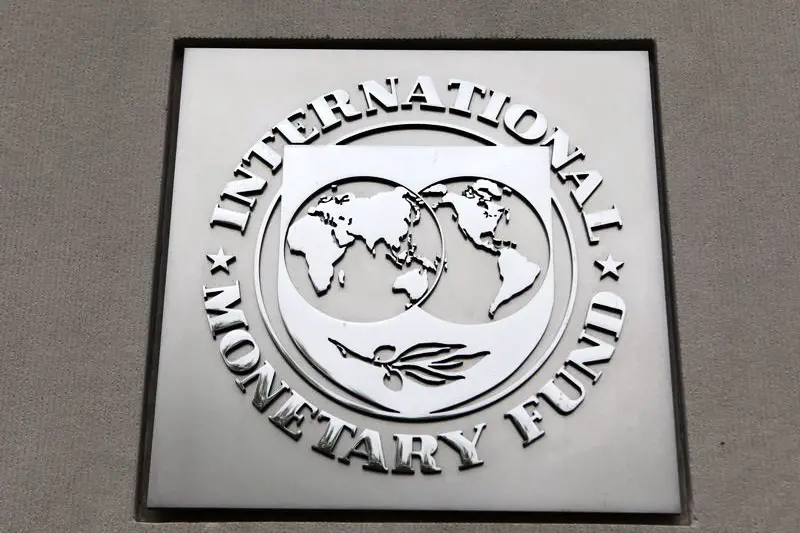PHOTO
02 May 2017
The six countries of the Gulf Cooperation Council (GCC) are committed to the introduction of a new value-added tax (VAT) from 2018, a top official in the International Monetary Fund (IMF) said in Dubai on Tuesday, reaffirming recent official remarks on the trade bloc’s determination to introduce the new tax.
GCC leaders agreed in 2016 to introduce a VAT rate of 5 percent on goods and services, as a bid to diversify the region’s dependence on hydrocarbons for the bulk of its government revenues, especially in light of the slump in oil prices since mid-2014. Each of the six GCC member states, which include Saudi Arabia, the United Arab Emirates, Bahrain, Qatar, Oman and Kuwait, will announce their own VAT regulations and exemptions.
Younis Al Khouri, under-secretary at the UAE finance ministry told Zawya in an interview last February that the new VAT is expected to be implemented simultaneously across the GCC starting January 1, 2018.
However several regional consultants have expressed a view that some countries, such as Oman and Qatar, may be behind in their preparations, while others such as the UAE and Saudi Arabia are likely to move ahead with their plans and be the first countries to introduce VAT on January 1, 2018.
“Countries are working for the implementation of the value-added tax in 2018 and the IMF is helping them,” Jihad Azour, the IMF’s director for the Middle East and Central Asia told reporters at a press conference in Dubai.
“Each country has its own program of (VAT) preparation,” Azour said. “They (the GCC countries) are committed to implement it in 2018,” he added. Azour said each country is free to set “the speed by which it would like to consolidate with the other countries.”
The UAE’s finance ministry in March began rolling out a series of workshops to educate local businesses on the management of the VAT system. The UAE’s president, Sheikh Khalifa bin Zayed Al Nahyan, is expected to issue the country’s VAT law by the end of summer.
Speaking in Dubai at the launch of the fund’s latest economic outlook report for the region, Azour praised the Middle East and Asia oil exporters – including Gulf Arab states from the GCC - for succeeding in lowering their fiscal deficits from 10 percent last year to a forecast of 4.5 percent this year.
He said the introduction of VAT is “an important milestone” to help oil-exporting countries in the GCC to continue their fiscal consolidations and structural reform plans.
For more on VAT coming to the GCC check out our Zawya Special Coverage
© Zawya 2017
The six countries of the Gulf Cooperation Council (GCC) are committed to the introduction of a new value-added tax (VAT) from 2018, a top official in the International Monetary Fund (IMF) said in Dubai on Tuesday, reaffirming recent official remarks on the trade bloc’s determination to introduce the new tax.
GCC leaders agreed in 2016 to introduce a VAT rate of 5 percent on goods and services, as a bid to diversify the region’s dependence on hydrocarbons for the bulk of its government revenues, especially in light of the slump in oil prices since mid-2014. Each of the six GCC member states, which include Saudi Arabia, the United Arab Emirates, Bahrain, Qatar, Oman and Kuwait, will announce their own VAT regulations and exemptions.
Younis Al Khouri, under-secretary at the UAE finance ministry told Zawya in an interview last February that the new VAT is expected to be implemented simultaneously across the GCC starting January 1, 2018.
However several regional consultants have expressed a view that some countries, such as Oman and Qatar, may be behind in their preparations, while others such as the UAE and Saudi Arabia are likely to move ahead with their plans and be the first countries to introduce VAT on January 1, 2018.
“Countries are working for the implementation of the value-added tax in 2018 and the IMF is helping them,” Jihad Azour, the IMF’s director for the Middle East and Central Asia told reporters at a press conference in Dubai.
“Each country has its own program of (VAT) preparation,” Azour said. “They (the GCC countries) are committed to implement it in 2018,” he added. Azour said each country is free to set “the speed by which it would like to consolidate with the other countries.”
The UAE’s finance ministry in March began rolling out a series of workshops to educate local businesses on the management of the VAT system. The UAE’s president, Sheikh Khalifa bin Zayed Al Nahyan, is expected to issue the country’s VAT law by the end of summer.
Speaking in Dubai at the launch of the fund’s latest economic outlook report for the region, Azour praised the Middle East and Asia oil exporters – including Gulf Arab states from the GCC - for succeeding in lowering their fiscal deficits from 10 percent last year to a forecast of 4.5 percent this year.
He said the introduction of VAT is “an important milestone” to help oil-exporting countries in the GCC to continue their fiscal consolidations and structural reform plans.
For more on VAT coming to the GCC check out our Zawya Special Coverage
© Zawya 2017





















